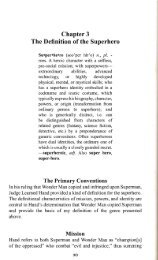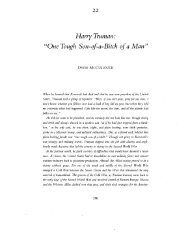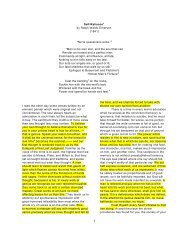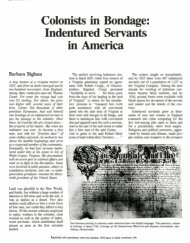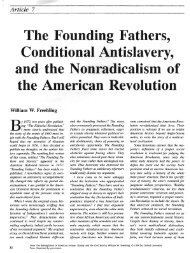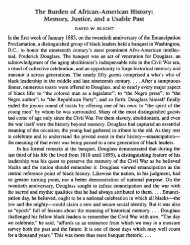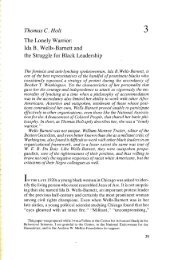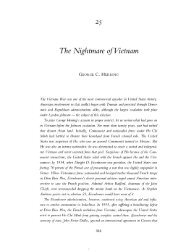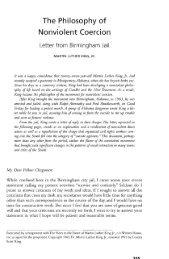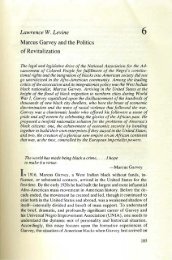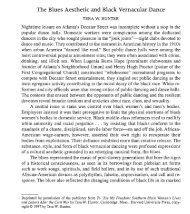Mary - Journeytohistory
Mary - Journeytohistory
Mary - Journeytohistory
You also want an ePaper? Increase the reach of your titles
YUMPU automatically turns print PDFs into web optimized ePapers that Google loves.
Chapter 11 Civil War 2JJDuring the war years slave's had moved significantly toward freedom. Manyof them were among the first, however, to realize that it had not been achieved.Even after the proclamation was issued, more than 800,000 slaves in the borderstates were untouched by it, to say nothing of the hundreds of thousands ifnot millions in the Confederacy who were not even to hear about the proclamationuntil months later. Political and economic freedom, moreover, blackshad neither in the South nor in the North. Their leaders were concerned aboutthese matters. The National Convention of Colored Men, which met at Syracusein October 1864, discussed the questions of employment, enfranchisement,and the extension of freedom. If blacks had no answers to thesequestions, it was because of the complexity and magnitude of the problems involvedin adjusting more than 4 million people to a new climate of freedom.CO FEDERATE POLICYOne of the greatest anxieties of the South at the beginning of the war was theconduct of slaves. The reaction of slaves to their status involved not only thesecurity of the white civilian population but also the maintenance of a stableeconomic system without which there was no hope of prosecuting the war successfully.The owners took no chances. It was all right to talk about the love ofslaves for their masters during times of peace, but in war idle talk and wishfulthinking were not the stuff of victories. There was widespread sentiment formuch closer control of slaves. Patrol laws all over the Confederacy werestrengthened. Florida in 1861 required biweekly patrols instead to make theirrounds once a week, and even more often "when informed by a creditable citizenof evidence of insubordination or threatened outbreak, or insurrection ofslaves." In 1862 Georgia canceled exemptions from patrol duty, and Louisianaimposed a fine of .$10 or twenty-four hours' imprisonment for failure to performit.The fears of white Southerners appeared to be fully justified. Ordinaryemergencies might not excite the slaves, but gradually they became aware thatSln"c dcsertion in this war their freedom was at stake. To be sure, there werennd trengthelling slaves who remained on the plantation, worked faithfully forof (latrolln\\'~ in their owners, and protected their mistresses, but as Bell 1.the COllfedernq' Wiley has pointed out, "these acts of loyalty, in the light ofcontemporary evidence, must be considered as exceptional." The most widespreadform of disloyalty was desertion. It could hardly be called running awayin the sense that that term implied before the war. Between 1861 and 1865black men and women simply walked off plantations, and when Union forcescame close, they went to their lines and got food and clothing. In Arkansas, accordingto Thomas Staples, "whenever federal forces appeared, most of theable-bodied adult Negores left their owners and sought refuge within theUnion lines." Almost the entire slave population of the Shirley plantation in



